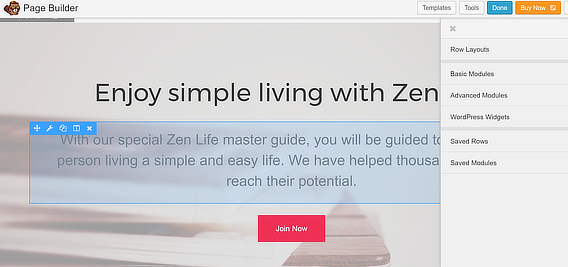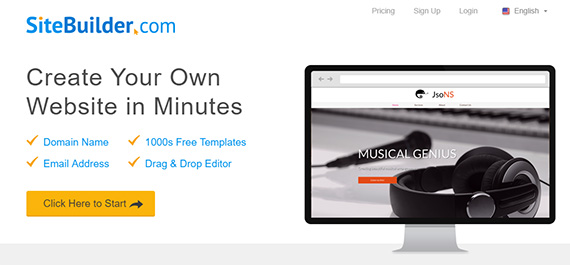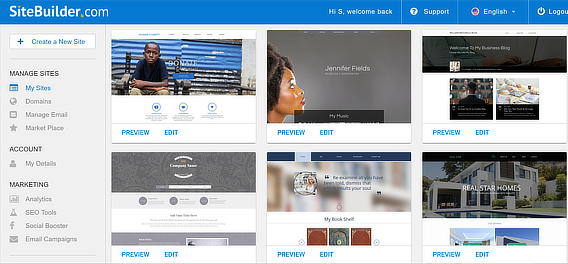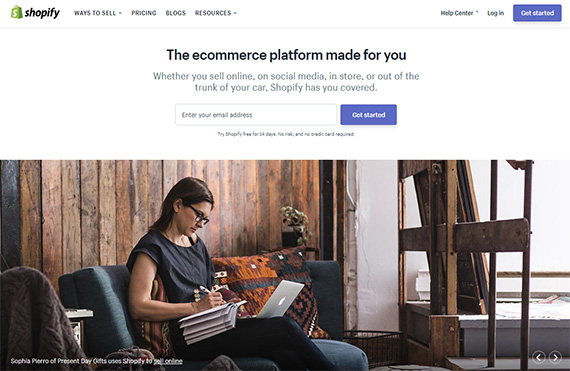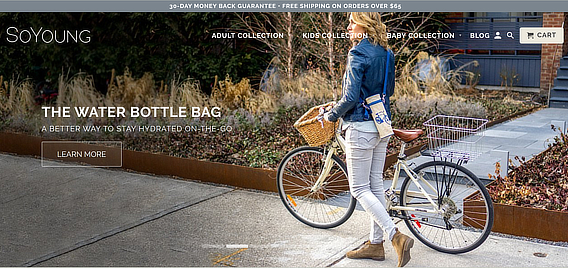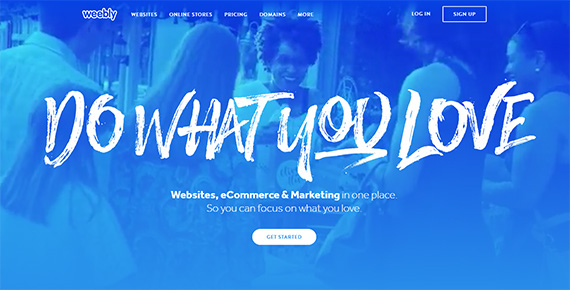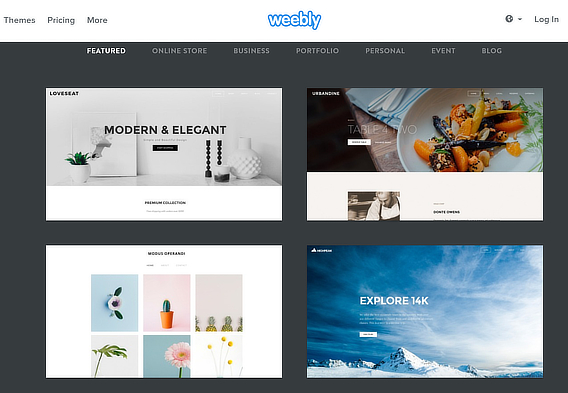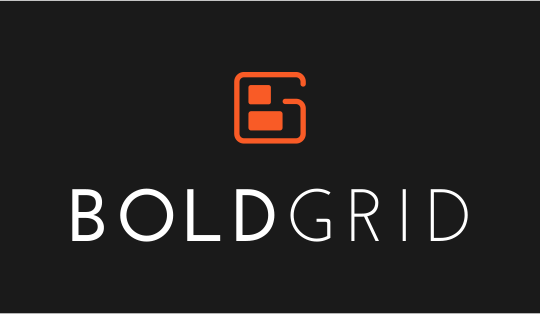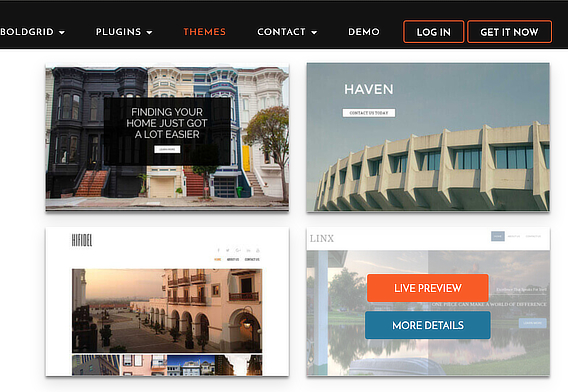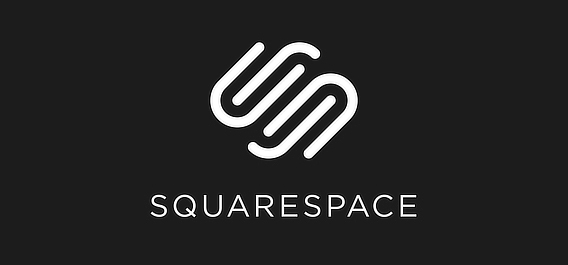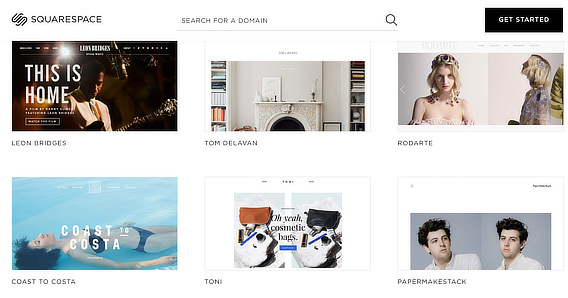All website builders offer one specific thing in common, they are dynamic, flexible and have creativity. However, these added values do not guarantee efficient google ranking. In order to build a stable income, you need traffic but traffic comes at price. Remember, nothing it's free nor a privileged google ranking is.
Did you know that less than 10% of your customers will find your business by just walking into your store?
It’s true, according to some research, the majority of your potential customers are searching for your online.
Even if you sell mostly from a physical store, more than a third of your customers are going to check your website first before they even THINK about visiting.
Bottom line: If you don’t have an online presence, you’re missing out.
There’s just one problem: coding a website from scratch takes technical know-how. And for small businesses on tight budgets, hiring a web designer or developer can be one expense too much.
That’s why website builder software is so important. Website builders:
- Are a great option for small business owners with budget, skill and time constraints
- Let you create an amazing website really fast at an affordable price
- Allow you to use the money you would have spent on web development to grow your business
Should You Use a Free Website Builder?
We DO include a few free builders in our list below. However, it’s crucial to pay attention to what’s on offer and make sure it fits your needs.
When you look deeper, many free website builders aren’t really free because:
- You can’t use your own domain
- You have to pay for templates and any addons
- You don’t have full control over your site
Of course, there are exceptions, as you’ll see nothing comes for free;
In this roundup, I will be looking at the six best website builders for small business, and I have included a handy table of contents. If you’re interested in a specific builder, do not hesitate to visit their websites.
- WordPress
- SiteBuilder
- Shopify
- Weebly
- BoldGrid
- Squarespace
Before we jump in, let’s take a look at our requirements. What makes a website builder the “best”?
Small Business Website Builders: What to Look For
Here are a few of the most important factors to look for in website builders for small businesses.
Affordability: One of the most important factors for small business owners is the price. You need a website builder that’s affordable now, and will still be affordable when your business grows. Think about how your site will evolve as your business grows. The best website builder software will ideally include plans that allow you to scale up easily when you need to.
Ease of use: You’ll also need your website builder to be easy to use and learn, with a wide range of templates for all situations. You should have a hassle-free way to add:
- The basic website pages you need, such as the home page, about page, services page, and contact page
- More complex features like image galleries and video content
- Other website elements that some businesses need or want, like a blog, a booking or reservation system, membership features, or an online store
Search engine friendliness: You’ll also want a website builder that’s search engine-friendly, so your site content appears in search results for your target keywords, and helps to attract your target customers.
With these features in mind, we’ve narrowed down our choices for the best website builder of 2017.
1. WordPress
There’s a reason why 26% of the web runs on WordPress, and it’s the world’s most popular CMS. That’s because it’s flexible, scalable and easy to use. We don’t want to jump ahead here, but WordPress is pretty much the best free website builder for small business.
We recommend the self-hosted version (WordPress.org) as your small business website builder because it’s even more flexible than the other version.
Pros:
WordPress is open-source and completely free, so it’s available on most web hosting platforms. For example, Bluehost, an official WordPress partner, has a one-click install.
Designing your site is easy, with thousands of pre-made themes that cover every business niche you can imagine.
For those who prefer more control, you can integrate WordPress drag and drop page builders. Two of our recommendations are Elementor, a fast, responsive website builder, available at $49 for a single site, and Beaver Builder (shown below), a live page builder which costs $99 for use on unlimited sites.
WordPress has tens of thousands of plugins to give your website additional functionality, like adding customizable forms, for example.
In fact, you can create almost any kind of site with WordPress, whether simple or complex.
Dozens of big name brands use WordPress, including many content-heavy sites. So WordPress is a great platform for your small business website, both when you launch your business, and as it grows.
WordPress is search engine-friendly by design. You can also use plugins like Yoast SEO to ensure your content is optimized to show up in search results.
WordPress integrates with virtually every online platform or tool you might want to use, giving you unlimited flexibility to create websites of all kinds, from content-rich blogs to eCommerce websites with thousands of products.
Cons:
Once WordPress is installed, you’re in charge of website security, which means backing up your site, keeping themes and plugins up to date, and updating WordPress itself when needed. Some of this has to be done manually, which means another addition to your to-do list.
One way to solve this is by using managed WordPress hosting, which means someone else looks after the technical aspects of running your site, leaving you free to concentrate on running your business.
Pricing:
It’s hard to believe that one of the best website builders for small business is free, but that’s exactly what WordPress is. Of course, you’ll have to pay for your domain name and hosting. Domains cost about $14.99 per year, and shared hosting costs around $7.99 per month.
2. SiteBuilder.com
SiteBuilder.com usually appears among the top 10 website builders.
One reason is because it’s a fully hosted, all in one website platform, where you won’t need to worry about the technical aspects of running a website. This feature is one of the reasons it’s included in our list of the best website builders for small business, but there are others.
Pros:
SiteBuilder works like a one-stop-shop for your business needs, with a variety of website creation packages. If you wish, you can get started for free, and gain access to its drag and drop website builder, and thousands of free templates.
The affordable Pro plan includes a free domain name and branded email address. This makes it easy for you to set up your website and start doing business fast.
If you need more functionality, it’s easy to add this, too. Other SiteBuilder packages include eCommerce integrations and SEO tools so your site shows up in search results. You can also easily track the performance of your website with analytics tools.
Cons:
Though SiteBuilder deserves its place among the best website builders for small business, there are a couple of issues to consider.
For a start, SiteBuilder is nowhere near as easy to extend as WordPress. In addition, you’re limited to the functionality that SiteBuilder developers make available.
But one of the biggest issues for small business is the limitation of the free plan. That plan doesn’t include a free domain name, and also excludes a branded email address. You definitely need a business email address so you look more professional to your customers.
The free plan is also ad-supported, and random ads on your site will look unprofessional, and potentially hurt your reputation.
Pricing:
SiteBuilder plans start at $4.99 per month for the Pro plan, which includes a free domain name and branded email address. If you need an eCommerce store for your business, you’ll need to upgrade to the eCommerce plan at $11.99 per month.
3. Shopify
If you’re running an eCommerce site or online store, then
Shopify is one of the best website builders for your small business. That’s because it’s specifically designed to help businesses handle online sales. The
Shopify platform powers more than 500,000 businesses, with more than a million active users.
Pros:
Shopify is a great way to launch an eCommerce store and start making money, without having to worry about the technical aspects of managing it.
Even absolute beginners find it easy to create their first online store with its drag and drop store builder. There are more than 100 themes to choose from in different niches.
You can use Shopify on your own domain. In addition to creating an online store, you can build a site and blog, all from the same platform.
Since you’re handling financial transactions, you have the added benefit of a free SSL certificate, which lets your customers know your site is secure.
The basic
Shopify plan also allows you to:
- Accept instant payments via the platform
- Use external payment processors
- Create and use discount codes to offer to your customers
- Track your product inventory and sales via an easy to use control panel
Best of all,
Shopify integrates with WordPress, and is noted for its excellent support. And it includes a Lite plan suitable for those who mainly want to sell products on social media.
Cons:
For some small businesses, the biggest disadvantage of Shopify is that it isn’t free. You’re also locked into the Shopify system, which could cause hassle if you ever want to change eCommerce platforms.
In addition, you need to upgrade to more expensive plans to get:
- Professional reports
- Abandoned cart recovery features
- The ability to use gift cards
- Third-party shipping rate calculators
However, the Lite and Basic plans are affordable for those starting out with eCommerce website builders for small business.
Pricing:
4. Weebly
Weebly‘s often listed among the best free website builder software. It’s true; it’s hard to argue with the price tag, but as with most things, you get what you pay for.
Pros:
Like SiteBuilder and Shopify, Weebly’s fully hosted, so you won’t get bogged down in the technical details of running your site.
You can create your Weebly site with its drag and drop builder, choosing from dozens of mobile responsive templates with modern designs.
Weebly also includes features to make your site search engine friendly. Weebly includes some lead generation features, though these are limited in the free version. Site storage is restricted to 500MB in the free version, which means if your website files take up more than that amount, you’ll need to upgrade.
Upgrading lets you use Weebly with your own domain, which is a must for the professional reputation of any small business. Domains are available free with the upgrade, along with a $100 credit to promote your business with Google Ads.
With different plans, you also get access to site analytics, site search, HD audio and video, and the ability to run a membership site.
Weebly also has a number of plans designed for businesses with online stores, though these aren’t free. Depending on the plan you choose, you can benefit from:
- The ability to sell digital goods
- Reduced transaction fees
- The ability to offer coupons and gift cards
- Abandoned cart emails
- Additional shipping functionality
Cons:
While Weebly’s often included among the best free website builders for small business, it’s probably more accurate to call it freemium. That’s because you have to pay if you want your own domain and more extensive site options. Small businesses running eCommerce stores will also have to pay.
Not everyone finds Weebly’s drag and drop builder easy to use, either. And under the hood, there’s some unnecessary code, which can hurt your SEO.
Finally, the main disadvantage of using Weebly is that you get locked into their platform. If you want to change website platforms later, you’ll find it difficult to move without having to recreate your entire site from scratch.
Pricing:
Weebly’s pricing for a regular website starts at $0, and ranges up to $25 per month. Its eCommerce pricing is between $8 and $38 per month.
5. BoldGrid
Next on our list of the best website builders for small business is BoldGrid. Developed by InMotion Hosting, BoldGrid’s a bit different from the others on our list, because you can use it either as a WordPress plugin, or as a fully hosted website page builder.
It’s a great way to get the flexibility of WordPress while making the site creation process simple.
Pros:
BoldGrid boasts no learning curve, with a drag and drop builder that’s easy to use. The website builder software includes a WYSIWYG (what you see is what you get) editor and thousands of free, mobile-friendly, WordPress themes so you can design your site any way you want. Plus you can make your site look even better with the free images that are included.
The BoldGrid package includes a blog, and will help you optimize your site to appear in search results. It’s compatible with eCommerce platform WooCommerce, so you can use it to sell products from your site. It also includes backup, so your site content is always protected.
BoldGrid’s killer feature is one-click creation of a staging site, so you can easily test your site design before making it live. Once you’re happy, it’s just as quick to move your design from the test site to the live site.
Finally, BoldGrid integrates with a number of web hosts, making it easy for you to use this website builder with your existing hosting package.
Cons:
There’s one main disadvantage to BoldGrid: you still need a self-hosted WordPress site to run it. That also means you’ll still need to take care of most the site management tasks we listed above.
Luckily, InMotion Hosting provides managed hosting plans to take the hard work off your hands.
Another possible disadvantage is that if you use the free version, you’ll have to keep BoldGrid branding on your site.
Pricing:
The BoldGrid plugin is free, and there’s a free version of the software for a single site. Otherwise, it costs $60 a year for unlimited sites.
6. Squarespace
One of the reasons Squarespace made our list of the 6 best website builders for small business is because sites built with Squarespace look great! Squarespace users love its beautiful designs and ease of use.
Pros:
Squarespace is easy to use, even if you’re a complete beginner, with dozens of designs and templates to choose from.
It’s not free, but its basic plan will let you set up a 20 page website, which is a good way for a small business to get started. You can use Squarespace with a custom domain, available for free for the first year. It’s full hosted, which means Squarespace keeps your site updated for you.
Squarespace provides a lot of functionality at an affordable price. Small business owners can get an SSL certificate, web analytics, and eCommerce features within the basic package. You can also sell unlimited products, and accept donations.
If you want more robust features for your online store, Squarespace has more advanced functionality via its online stores plans. Depending on the plan, you’ll get access to inventory management, accounting, checkout, abandoned cart recovery, and eCommerce reporting.
Cons:
One disadvantage for small business owners is that this website builder isn’t free. And if you get your domain name through Squarespace, you’ll have to pay renewal costs after the first year.
Some people find there’s a learning curve for building your site, though Squarespace’s excellent support will help solve any issues.
And if eCommerce is important to your business, you’ll need to spring for one of the more expensive plans to get the features you need.
Pricing:
Squarespace websites are available at either $12 or $18 per month. Their online stores cost either $26 or $40 per month.
Best Website Builder for Small Business: Who Wins?
So, now that we’ve narrowed down our choices for the best website builder of 2017, which builder wins?
It depends…
Best All-Around Website Builder
WordPress is our all round pick for the best website builder for small business. That’s because it’s flexible, extensible, scalable, and easy to use.
And with a quarter of the web running on WordPress, there’s a strong community to help provide the resources and help you need.
Best Website Builder for eCommerce
Shopify wins our vote for the best eCommerce website builder. We love its user-friendliness, professional designs, and expert tools so you can create a high-earning online store your customers will fall in love with.













